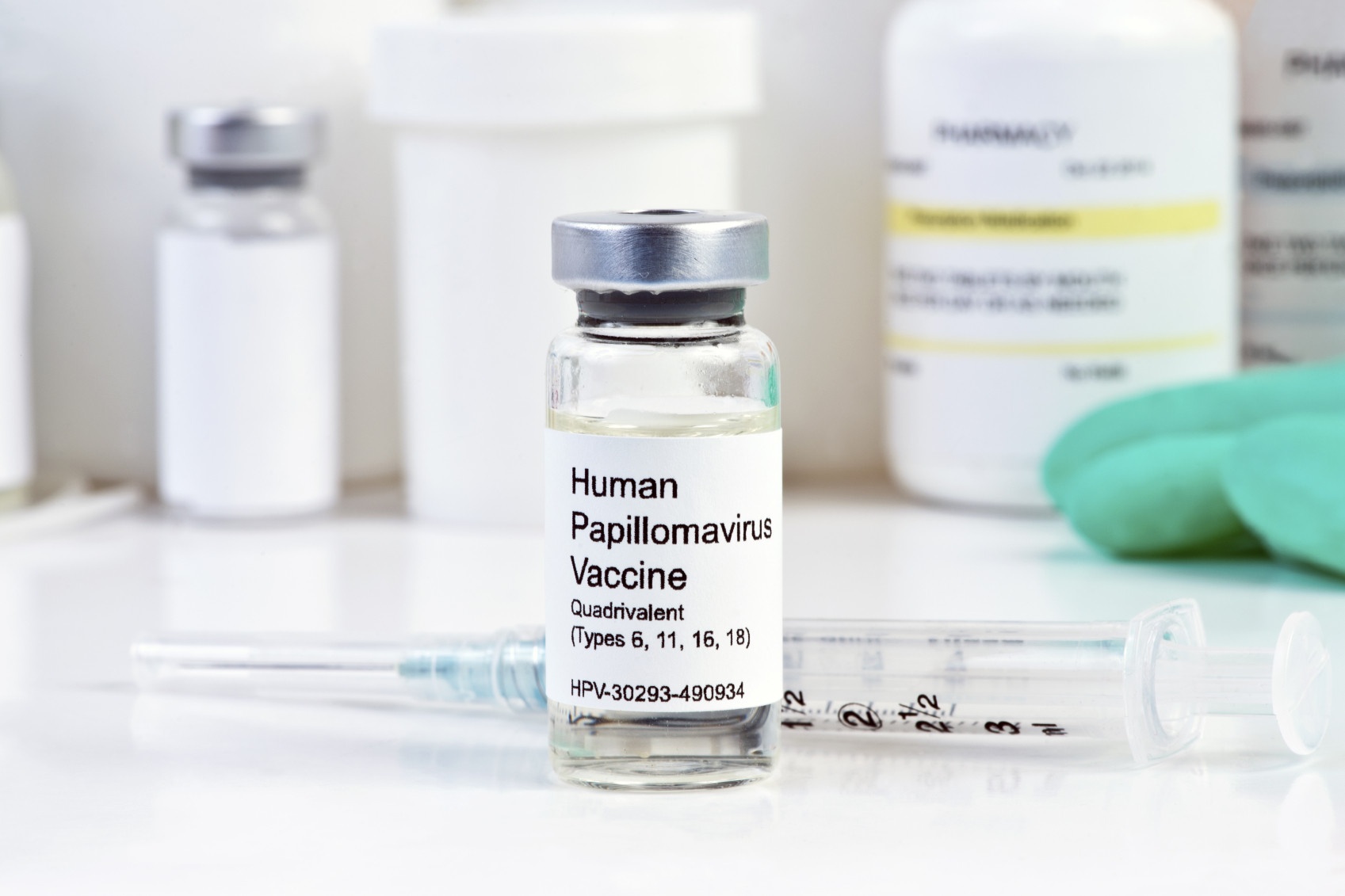
Trying to lose weight? Be careful not to lose muscle

Is your skin problem actually an autoimmune condition?

People with diabetes face higher risk of hearing loss

Antibiotic-free fixes for recurrent UTIs

Musculoskeletal syndrome of menopause: When menopause makes you ache all over

When can older women stop getting mammograms?

To lose weight, especially harmful belly fat, combine diet and exercise

Can men hold off on treating recurring prostate cancer?

The 7 types of rest and why we need them all

What are the early warning signs of cervical cancer?
Harvard Health Blog
Read posts from experts at Harvard Health Publishing covering a variety of health topics and perspectives on medical news.
Articles
The SPRINT trial: A major advance in treating high blood pressure
The SPRINT study was a large clinical trial involving people with high blood pressure who were at increased risk for heart disease or who already had kidney disease. The results of this study showed that aiming for a systolic blood pressure of 120 mm Hg instead of the current 140 mm Hg target greatly reduced the chances of developing serious cardiovascular problems. On average, reaching the target required 3 blood pressure drugs instead of 2. If you already have well-controlled blood pressure, you don’t need to rush to see your doctor about this, but it’s worth having a conversation with your primary care physician about the potential benefits of a lower blood pressure target.
Why Public Schools Should Require the HPV Vaccine
Rhode Island recently made it a requirement for all children who attend a public school to be vaccinated with HPV. Not every one likes this is new requirement. Those who oppose the change point out that you catch HPV through sex, unlike infections like measles or whooping cough that you can catch if someone in the classroom has it and coughs on you. Why, they say, should the HPV vaccine be required for school? Because it could save lives, that’s why.
Getting closer to understanding how exercise keeps brains young
A new study published in PLOS One, looked at oxygen related changes and nerve processing in the brain, features that have shown to correlate with better memory and brain function as people age. It found that people with higher fitness levels were the same ones that were more physically active during the week. They were also the same people who showed more positive oxygen related changes and MRI findings consistent with faster nerve processing in the brain. Though there isn’t an exact exercise prescription to guide how long and hard we should exercise, the results of this study and many others, show even low intensity activity for an hour a day is much better for the brain than sitting on the couch.
What “off-label” use of a drug really is, and why you need to know about it
You might be surprised to learn that, on average, one in five prescriptions are written for an “off-label” use of a drug. That means the doctor believes that the recommended drug will help a patient, even though that drug has not been FDA-approved for that patient’s particular condition or symptoms. This practice is legal and common. Historically, the FDA has restricted the ability of pharmaceutical companies to advertise drugs for off-label uses. However, two recent court cases have opened the door to proactive promotion of drugs for off-label uses. Physicians and consumers need to be aware of this shift when it comes to using drugs safely for off-label purposes.
The effects of sleep deprivation on surgeons — and their patients
Do the long hours in the hospital, often with little sleep, make doctors in training more prone to making mistakes? Over the past decade, concerns regarding trainee doctors’ sleep loss and the potential for medical errors have brought about limits on the number of consecutive hours a resident can work in the hospital. Do the same concerns apply to fully licensed surgeons? A recent study in The New England Journal of Medicine suggests that the answer is no. Comparing the data on patients whose surgeons were on call the night before with that of patients whose surgeons were not working the night before showed virtually no difference in how well the patients did after surgery. It is not clear, however, whether these doctors anticipated the effects of being on call and compensated for them, or whether these results would be the same for less-experienced surgeons-in-training.
Heart-healthy diet boosts survival in men with low-risk prostate cancer
Can a healthy diet help men with low-risk prostate cancer live longer? The authors of a new study say “yes.” A long-running Physicians’ Health Study, suggests that a diet that is good for the heart, brain, and other parts of the body may also help keep low-risk prostate cancer at bay. On the flip side, a diet rich in red meat and high-fat dairy foods appears to be hazardous for men with this kind of cancer. It isn’t clear why a diet that protects against heart disease would also protect against death from prostate cancer. Dr. Chavarro speculates that it’s because high-fat foods are easily broken down and absorbed by the digestive system, and so they might provide quick energy sources for growing tumors. Nevertheless, the results suggest that by eating healthily, men with prostate cancer can take a proactive step towards living a long life.
Direct-to-consumer drug advertising — beyond what you see on TV
Consumers are barraged by ads for prescription drugs on television and in print. Twenty years ago, people who knew the names of the drugs available for their health conditions, and knew to ask for new drugs by name, were few and far between. But today, direct-to-consumer ads encourage patients to ask their doctors for new (and often pricey) medications. While it isn’t bad to inform people about new and potentially better medications, this tidal wave of advertising has a downside. Potential side effects and risks are not always completely and plainly explained and the cost of these drugs is often not made clear. While it is fine to ask your doctor about a drug you’ve seen on TV or elsewhere, be aware that a new medicine is not necessarily a better medicine — or the right one for you.
Can digital fitness trackers get you moving?
Study after study has shown that Americans don’t get enough activity. In fact, many of us don’t even get our recommended 10,000 steps a day. Could pedometers or digital fitness trackers help? Pedometers are simple gadgets that measure how many steps you take. Digital fitness trackers also measure the pace, distance, duration, and intensity of your activity, and often have accompanying web applications that can evaluate and even graph this information. In a small study published in the American Journal of Preventive Medicine, researchers gave either a standard pedometer or a Fitbit brand digital fitness tracker to 51 overweight postmenopausal women who had been getting about 33 minutes per week of moderate to vigorous physical activity. The pedometer group did not have any significant change to their activity levels. But the fitness tracker group increased their physical activity by an additional 38 minutes per week.
Looking for Autism
Statistics show that one out of every 68 children in the United States meets the criteria for autism spectrum disorder (ASD). What these figures don’t show is that early intervention and treatment can make a huge difference in the lives of these children and their families. Routine well-child visits are important to monitor health and growth, but they also provide an opportunity to keep an eye on a child’s development. While most children do not have ASD, and some kids are just “late bloomers,” others may show signs of any number of developmental challenges or delays — all of which benefit from therapies at home or at school. Of course, all children benefit from mindful observation of their development and advice and support from their pediatricians, should concerns arise.
Quitting smoking doesn’t have to mean big weight gain
Weight gain might be one of the most dreaded “side effects” of quitting smoking. Constant reminders of the health dangers of being overweight lead some smokers to think that smoking is “safer” than the weight they might gain if they quit. But that’s just not the case. It’s true that people tend to gain 5-10 pounds in the first six months after they stop smoking. But a recent study suggested that for those who quit, weight gain slows down over the following 10 years after quitting. Over that same time period, people who continued to smoke also gained some weight, though not as much. Over all, kicking the habit doesn’t have to mean a larger waistline, especially if you plan ahead.
It’s NOT a “pink Viagra”
Women of all ages have questions and concerns about their sex lives. These issues often come up after having a baby, during perimenopause, and well into later life, too. Women’s sexuality is very complex. Brain chemistry, mood, hormones, and the nature of a woman’s relationship with her sexual partner are all important influences. This week, the FDA approved the drug flibanserin for treatment of low sex drive in premenopausal women. This drug is no “pink Viagra,” and its effect on women’s sexual function may be small, but it may be a step in the right direction simply because it draws attention to the value of a satisfying sex life for women and acknowledges it as a legitimate health concern.
Is treating “low T” really safe and effective?
If you’re a man, you’ve undoubtedly heard that lack of energy or sex drive, trouble concentrating, or feeling down or not quite yourself could be related to low testosterone, or “low T” — and that a little testosterone replacement could have you back on your game. But testosterone replacement is tricky business, and its safety and effectiveness remain controversial. Further, there can be many other causes for the symptoms of “low T.” A thorough evaluation to determine whether low testosterone is really the problem, along with a careful weighing of the potential risks and benefits of testosterone replacement, are essential before considering this drug.
Doctor-rating websites offer helpful but limited advice
Websites that rate doctors and their practices can offer valuable information, but it’s often incomplete. Narrative reviews, in which patients describe in their own words their experiences with clinicians, are usually the most helpful — but could be even more so if they were collected in a standardized format. What’s more, only 40% of doctor-rating sites list information on how well a provider performs in terms of offering timely appointments and following guidelines for preventive screening tests. If you’re looking for a new clinician, it may be most helpful to ask trusted friends and family members for recommendations.
Standing up for better heart health
Spending less time sitting and more time standing lowers blood sugar, cholesterol, and weight — all of which translates into a lower risk for heart disease. So says a study of Australian adults published in the July 30 issue of the European Heart Journal. Every two hours a day spent sitting was associated with an increase in weight and waist size, as well as in levels of blood sugar and cholesterol. As you might expect, time spent walking rather than sitting not only lowered cholesterol and blood sugar levels, but also reduced waist size and weight. Simply substituting two hours of standing for sitting also improved blood sugar and cholesterol levels. By making slight changes in your lifestyle to incorporate more standing, you could add important health benefits.
CPR during cardiac arrest: someone’s life is in your hands
Cardiac arrest is the ultimate 911 emergency. The heart stops sending blood to the body. Death occurs in minutes — unless a bystander takes matters into his or her hands and starts cardiopulmonary resuscitation (CPR). This keeps blood circulating until trained and better-equipped first responders arrive on the scene to jump-start the heart back into a normal rhythm. Two new studies in JAMA provide compelling proof that efforts to train people to do life-saving CPR pay off. Many organizations sponsor CPR and AED training programs. Two notable ones are the American Heart Association and the American Red Cross. Many local departments of public health also provide CPR training, including “friends and family” classes for people close to someone at risk of cardiac arrest. The investment of time and effort to learn CPR is small. The potential payoff — saving a life — is huge.
Bypass surgery an “uncommon” cause of memory loss, cognitive decline
Coronary artery bypass surgery (CABG) offers a new lease on life for thousands of people each year. But it has also been blamed for “brain fog,” a loss of memory and thinking skills that follows the procedure in some people. Such brain problems are often called “cognitive impairment.” But the operation itself may not be to blame, according to a review in today’s Annals of Internal Medicine. A team of mostly Veteran’s Affairs researchers concluded that intermediate and long-term cognitive impairment after cardiovascular procedures “may be uncommon.” That said, they recommend that anyone thinking about open-heart surgery or other large cardiovascular procedure should discuss with the surgeon the possibility of cognitive impairment.
Studies support broader use of cholesterol-lowering statins
The latest guidelines used to determine who should take a cholesterol-lowering statin to prevent heart disease appear to be more accurate and cost-efficient than the previous guidelines. That’s according to two studies led by Harvard researchers, both published in this week’s Journal of the American Medical Association. The new guidelines, published in 2013 by the American College of Cardiology and the American Heart Association, recommend a statin for men and women between the ages of 40 and 75 who have a 7.5% or higher risk of having a heart attack or stroke over the next 10 years. The JAMA studies show that the new guidelines provide a more accurate assessment of who would benefit from a statin and who wouldn’t, and are more cost-effective than the older guidelines. Statins aren’t a cure-all. Eating a healthier diet, exercising often, and not smoking will go a long way to preventing heart attack and stroke.

Trying to lose weight? Be careful not to lose muscle

Is your skin problem actually an autoimmune condition?

People with diabetes face higher risk of hearing loss

Antibiotic-free fixes for recurrent UTIs

Musculoskeletal syndrome of menopause: When menopause makes you ache all over

When can older women stop getting mammograms?

To lose weight, especially harmful belly fat, combine diet and exercise

Can men hold off on treating recurring prostate cancer?

The 7 types of rest and why we need them all

What are the early warning signs of cervical cancer?
Free Healthbeat Signup
Get the latest in health news delivered to your inbox!
Sign Up
























